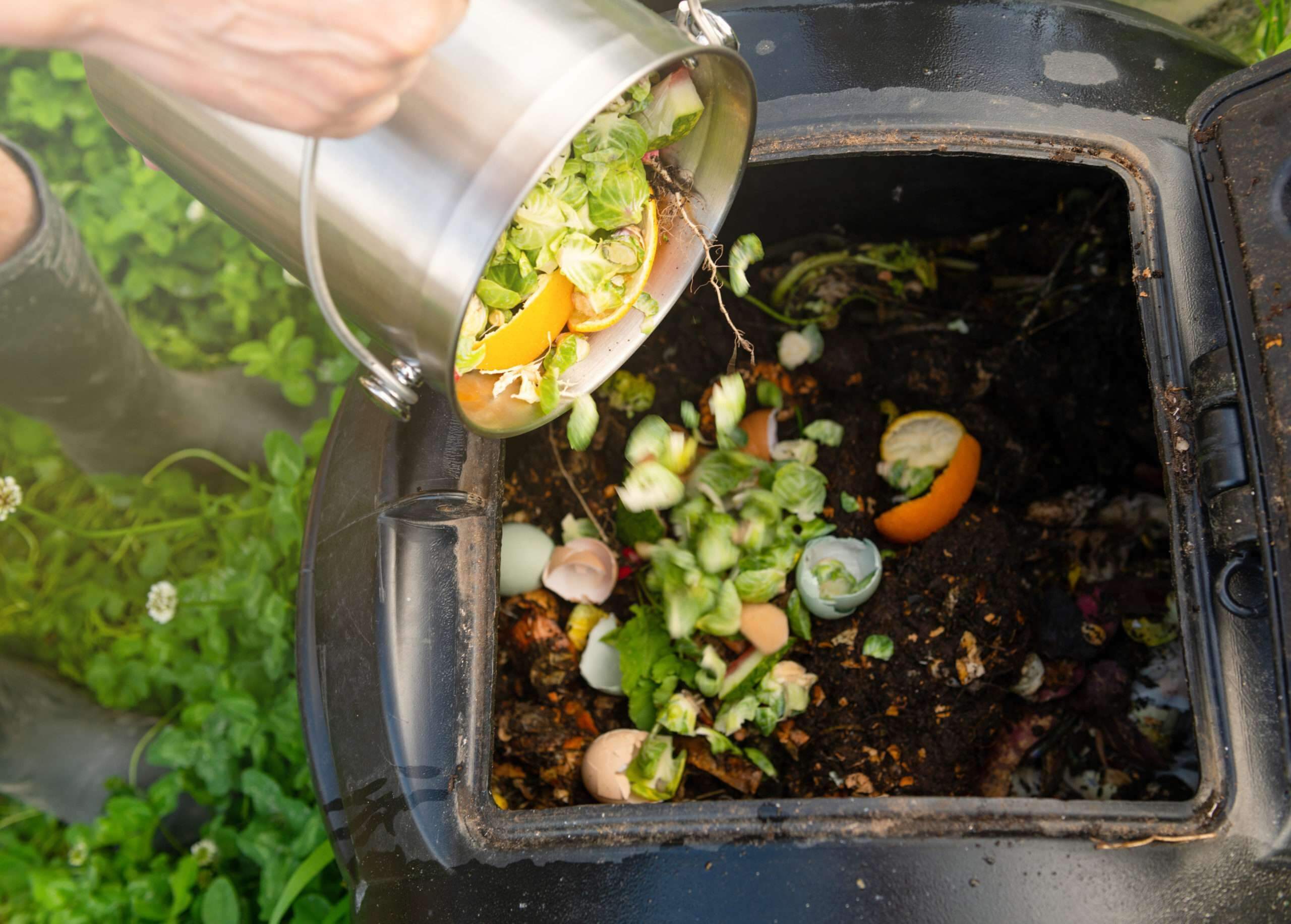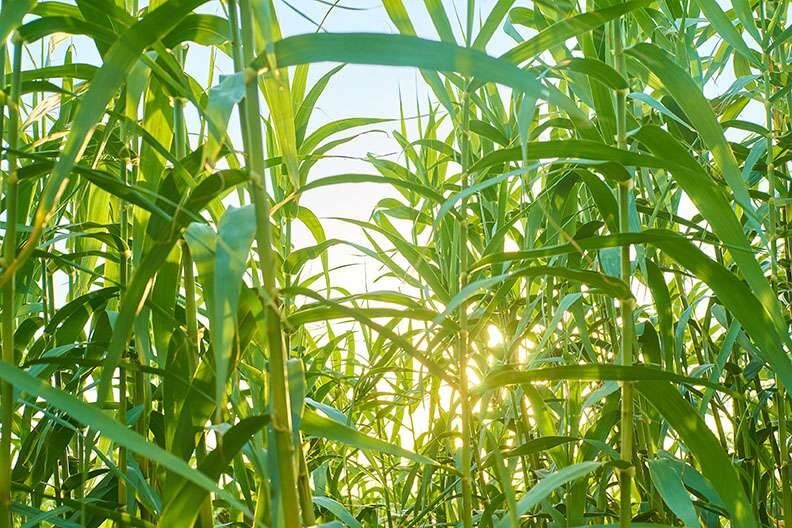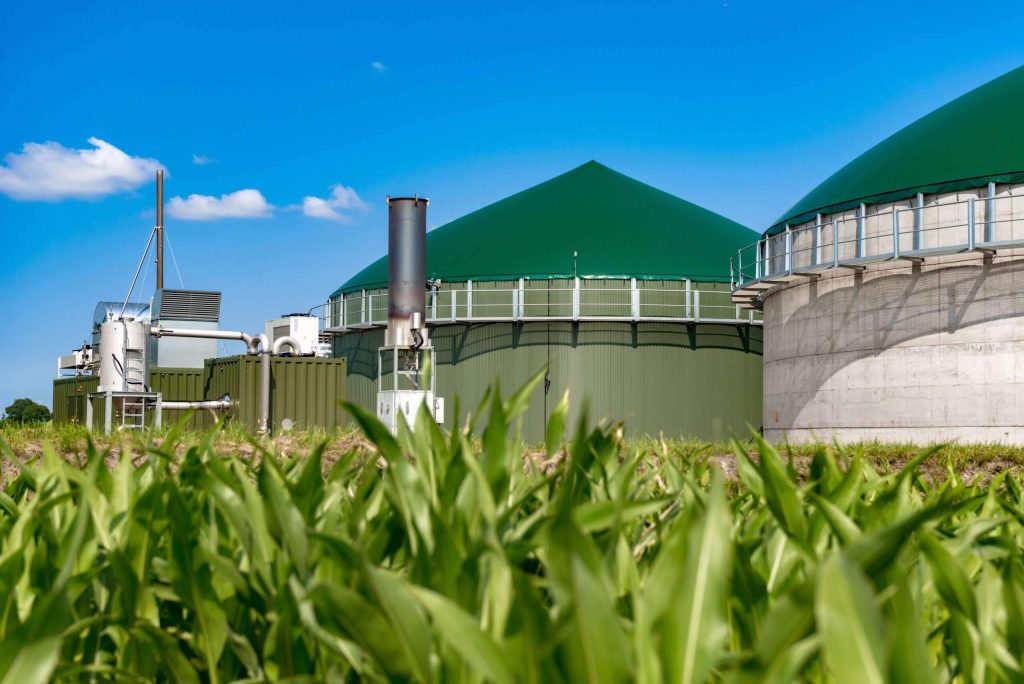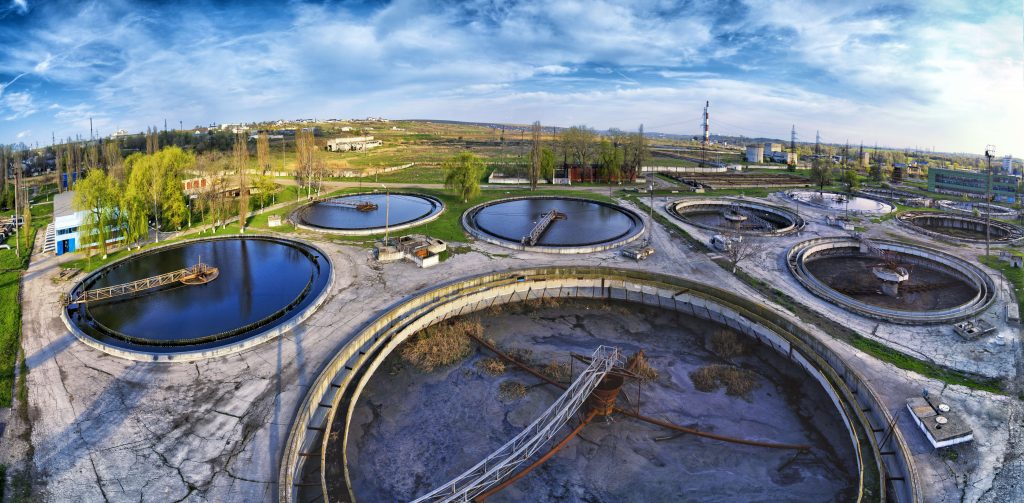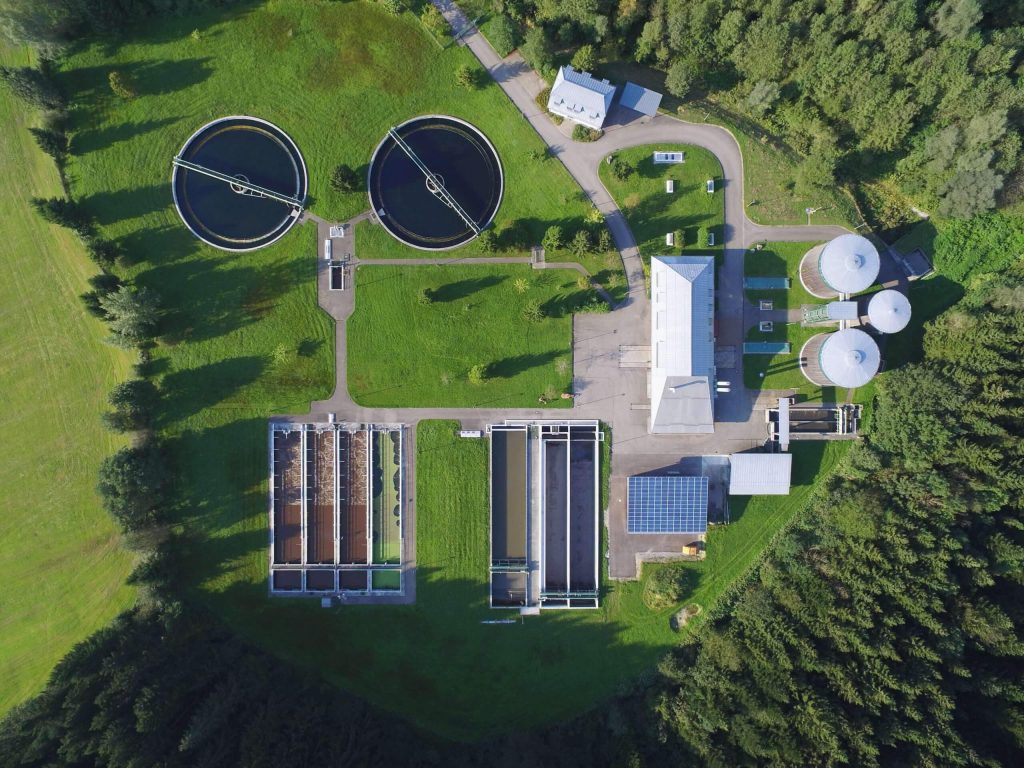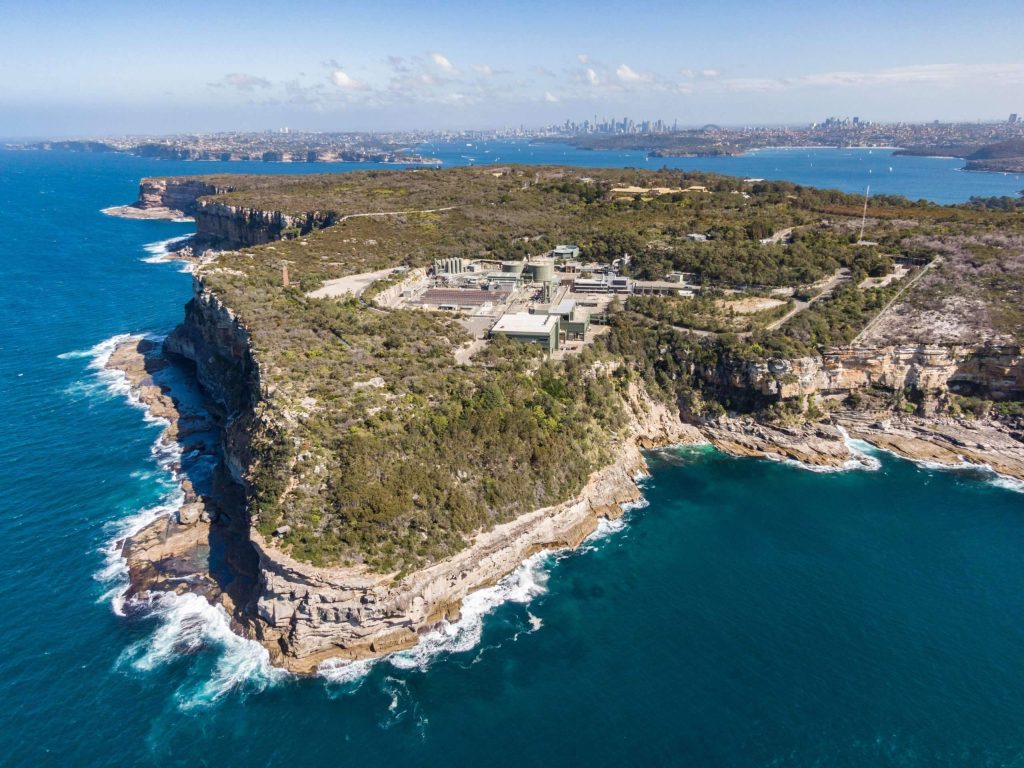Chief Investigators
Andrea Turner (UTS)
Purpose of project
This project brought together key stakeholders in the typically siloed waste, wastewater and energy sectors to quantify and geospatially map the multiple layers of urban organic waste (UOW) in Sydney and assess its bioenergy potential. The project demonstrated the potential of anaerobic digestion (AD) as a climate change solution that generates bioenergy, cuts waste greenhouse gas emissions, recovers nutrients and potentially saves millions of dollars through optimising existing and planned AD infrastructure.
Using the best available data for UOW catchment areas around three specific Sydney Water wastewater treatment plants (WWTPs) (Malabar, St. Mary’s and Riverstone), this research identified the estimated mass of various streams of UOW for both the residential and non-residential sectors (e.g. food waste, garden organics, , sewage and fats, oils and grease), in a geospatial format. This information could enable the project partners involved to assess which streams are viable in terms of the quantity, quality and bioenergy potential to target for potential collection for co-digestion treatment at the specified WWTPs.
Findings
- The three WWTPS could provide as much as 20% of the identified AD infrastructure capacity gas needed for Sydney by 2030
- Diversion could create 38 billion litres of biogas, with an energy value of 1,371,362,013 MJ
- 49% of the potential is from food organics, 38% from garden organics and the remainder from sewage and fats, oils and greases
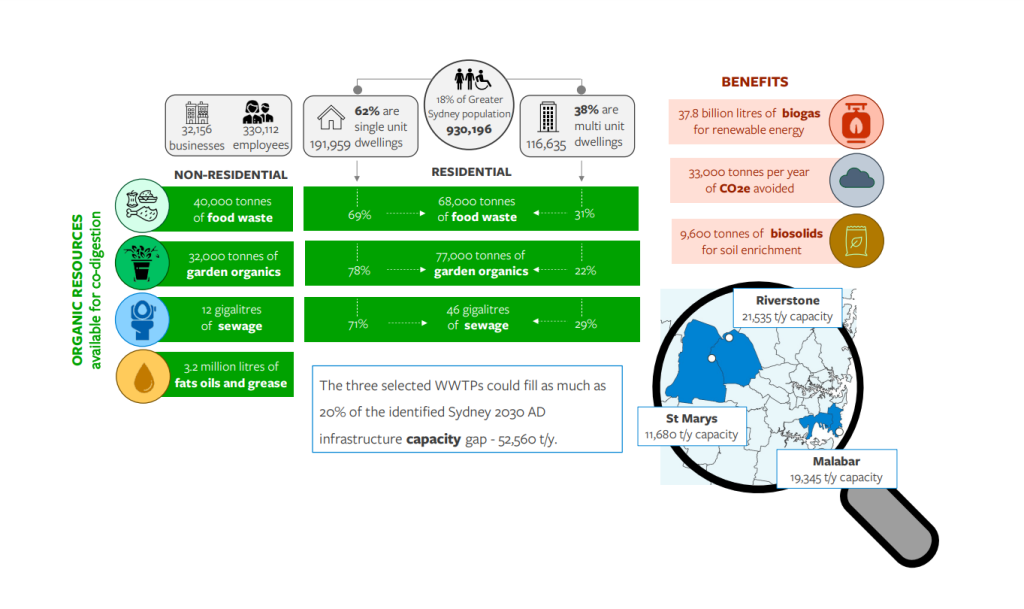
Potential impact
Benefits include production of 38 billion litres of biogas with 1,371 TJ energy equivalent, 9,600 tonnes of biosolids for soil enrichment and 33,000 tonnes of carbon dioxide equivalent saved every year for the 3 WWTP included in the study, which covers about 18% of Sydney’s population, or nearly 1 million people.
Research roadmap
The method developed in this research could be used to assess the wider urban organic codigestion potential in WWTP and AD for the whole of the city and other metropolitan and regional towns.
Project partners – industry and research
UTS (Lead), Bayside Council, Blacktown City Council, Jemena, NSW Environment Protection Authority, NSW DCCEEW, Penrith City Council, Randwick City Council, Sydney Water, Sustainable Advantage
Roundtable recording
Published Report
Status
- Completed
Project Leaders
- Andrea Turner, UTS
Completion Date
July 2023
Project Code
0195


